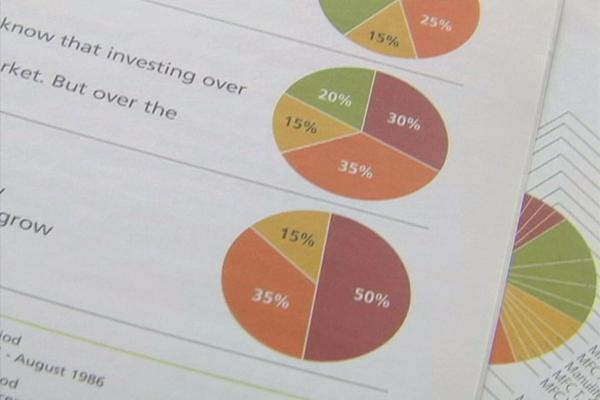Markets
Silicon Valley Bank’s Collapse Will Leave A Big Hole In The Startup World
Silicon Valley Bank’s dramatic fall in just a handful of days likely will leave a lasting impact on the tech and startup ecosystem it tried so hard to…

Any bank collapse can cause jitters in an economy or industry, but Silicon Valley Bank’s dramatic fall in just a handful of days likely will leave a lasting impact on the tech and startup ecosystem it tried so hard to foster.
SVB was the dominant bank for tech startups and venture debt in the U.S., cultivating a reputation for close-knit relationships with the power brokers of venture and taking chances on young startups that most banks wouldn’t have the time of day for.
Search less. Close more.
Grow your revenue with all-in-one prospecting solutions powered by the leader in private-company data.
The bank was founded in 1983 by Bill Biggerstaff and Robert Medearis with an eye toward backing VC-backed companies — a still relatively new phenomenon at the time. From there it grew, even surviving the California real estate crash in the early 1990s. It provided banking services for up-and-coming tech companies such as Cisco Systems and Bay Networks.
Now, after 40 years, startups will have to look somewhere else for their financial needs — if such a place exists.
Venture debt
SVB wasn’t just a bank for VC-backed startups — it was “the” bank for such companies. It had relationships with more than 50% of all venture-backed companies in the U.S. and countless VC firms.
One of the reasons SVB became the bank of choice was its venture lending practice. The bank had about $74 billion worth of loans on its books which includes its venture debt.
Venture debt is a type of debt VC-backed companies raise to elongate their cash runways and cut down on dilution — usually in unison with raising equity.
However, the debt is often less structured and requires fewer financial covenants than other forms of debt.
This became what SVB was known for among startups, and the bank’s relationships with VCs was pivotal in that venture debt business. SVB did business with a who’s who of money in the valley, including Sequoia Capital, Kleiner Perkins and Accel.
It was those relationships that allowed the bank to take chances on young startups — knowing the firms it worked with would make it whole again if something went awry, one VC said.
Who steps up?
Now the question is who will replace SVB in the venture debt ecosystem.
Zack Ellison, founder of Applied Real Intelligence’s Venture Debt Opportunity Fund, said he expects nonbank lenders to step into the lending space in general — which happened after the financial crisis of 2008 with firms like Apollo Management and Blackstone.
Other banks, such as JPMorgan, Citi or Wells Fargo, have shown increasing interest in venture debt, but cannot do it the same way SVB was able to due to their size.
SVB took a chance lending to very young seed and Series A startups, something the Office of the Comptroller of the Currency, a banking regulator that oversees large banks in the U.S., does not approve of since those companies are not within a year of profitability, said a source.
Other smaller banks also could look to fill the void, but regional banks have taken a pounding after SVB’s fall. First Republic Bank has a growing venture lending business, but it also has been hit hard. It recently took in fresh funding from the Federal Reserve and JPMorgan to increase its liquidity.
Coping
While questions remain about who may step into SVB’s shoes — if anyone — startups continue to deal with the fallout of the last several days and what it means for their business.
Seed-funded health care startup Pair Team has banked with SVB for four years and was one of many startups left scrambling after the bank’s fall. The company’s investors include NTT VC, 8VC 1 and Kleiner Perkins.
Like most startups, its biggest risk once SVB fell was meeting payroll for its 43 team members.
“We aren’t tech elite or the technologists with salaries greater than Pair Team’s entire payroll; we are single moms, grandparents, students, sole breadwinners for their family. Even one day without a paycheck is devastating,” said Cassie Choi, co-founder and COO of Pair Team, via email to Crunchbase News.
Pair Team has since opened two new bank accounts and has to provide new banking details to all of its vendors and customers to ensure payments.
“The failure of SVB should be a warning sign to other banks, politicians, investors, businesses, and even consumers to understand the financial viability of a system we all rely on,” said Choi. “When SVB started crashing on Thursday, it created a significant impact on the startup/tech industry as a whole, but on the other side of bank statements, there are real people,” she said.
Further reading:
- Silicon Valley Bank Collapse Leaves Tech Industry Scrambling For Answers
- Silicon Valley Bank Bet Big On Biotech. And Now It’s Gone.
- Regulators Announce Plan To Ensure SVB Depositors
- Guaranteeing SVB’s Deposits Was The Right Thing To Do
- SVB Puts Subsidiaries Up For Sale As HSBC Buys UK Unit
Crunchbase’s Senior Data Editor Gené Teare contributed to this report.
Illustration: Dom Guzman

Wittiest stocks:: Avalo Therapeutics Inc (NASDAQ:AVTX 0.00%), Nokia Corp ADR (NYSE:NOK 0.90%)
There are two main reasons why moving averages are useful in forex trading: moving averages help traders define trend recognize changes in trend. Now well…
Spellbinding stocks: LumiraDx Limited (NASDAQ:LMDX 4.62%), Transocean Ltd (NYSE:RIG -2.67%)
There are two main reasons why moving averages are useful in forex trading: moving averages help traders define trend recognize changes in trend. Now well…
Seducing stocks: Canoo Inc (NASDAQ:GOEV 5.43%), Ginkgo Bioworks Holdings Inc (NYSE:DNA -1.12%)
There are two main reasons why moving averages are useful in forex trading: moving averages help traders define trend recognize changes in trend. Now well…
















